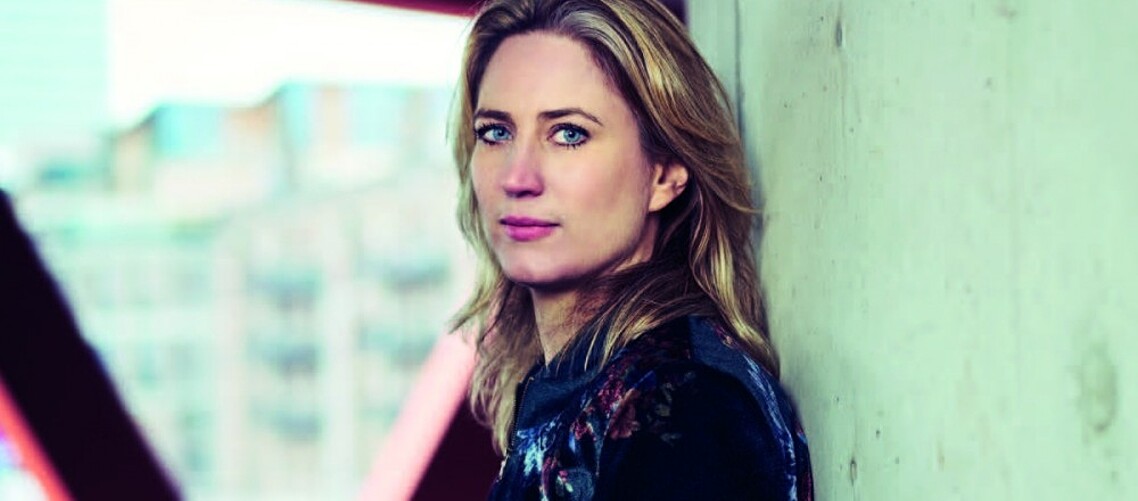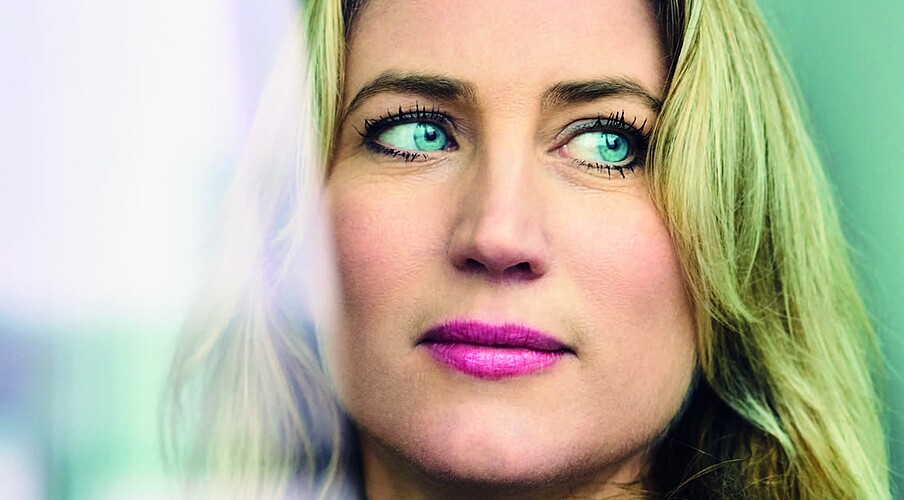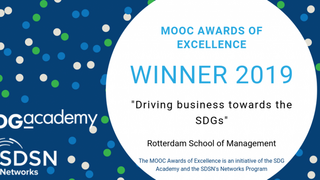Most people would consider being asked to solve their country’s poverty crisis as an impossible brief. But Marjolijn van Gerven (MSc Business Administration, 2001) is not most people. As the person leading the Dutch response to the United Nations’ number 1 goal – to end poverty in all its forms everywhere – the RSM alumna is not just hopeful of success, she’s positively optimistic.
Universal agenda
“We’ve never before had a truly co-ordinated national approach to this problem, or to make it a joint effort between government and the rest of society,” she says. “Which means that, despite all the documents, research and government papers, we’ve never really given ourselves a chance to try as hard as we can.” But, she says this has changed since the leaders of the UN’s 193 member states put eradicating poverty at the top of 17 Sustainable Development Goals (SDGs) to address the world’s most urgent problems. “There is now a universal agenda that binds different parties such as government, corporates, creatives and (social) entrepreneurs together. And that means all things are possible.”
600,000 households
In March 2019, Van Gerven was asked by the Dutch Ministry of Foreign Affairs’ Hugo von Meijenfeldt to work as part of a team of co-ordinators, under the chairmanship of former politician (and former Rector Magnificus Erasmus University Rotterdam) Alexander Rinnooy Kan, to address the 17 goals. Her specific target is to cut by half the 600,000 Dutch households currently living in poverty within just 10 years. The co-ordinators are asked to build up a national alliance around their goal, and together they search for interrelated themes between their goals.
Irrational choices
“It is my belief that this infrastructure is not only of value to reach for the 2030 UN goals,” she says, “it’s also the start of a national public-private infrastructure that can be used in many ways. We are fortunate to live in such a prosperous country that many people do not even see poverty as a problem here. But it absolutely exists, and we’re not simply talking about a lack of money. The impacts are much wider than that – social isolation, anxiety and depression, physical health issues, bad housing or even homelessness, crime and domestic violence. Poverty leads to stress, and stress leads to irrational choices and behaviour. For millions of people, these issues stem from not having enough to live on. And that is why we need to act. That is why I need to act.”
Written ambitions
But where, with such an enormous challenge, do you start? For Van Gerven, the first practical step was finding out what had already been done. “I spent months researching documents, public consultations and government policies, to discover the country’s written ambitions around poverty. I then started sounding out organisations, potential partners and influential people in the field to hear their thoughts and see if they might want to participate and how they could contribute.”
Van Gerven quickly saw that the key was a joined-up approach, and began to bring together an alliance of 20 business, education and government partner organisations to exchange knowledge, map out existing services and identify the gaps. “I have been given free rein, which gives me the opportunity to execute this role based on my own vision. I think one of my strengths is identifying which coalitions, organisations and thought leaders are best suited to achieving this goal.”
Impossible task
When you look at her background, it seems as if Van Gerven was born to do this job. After studying at RSM for an MSc in business administration and then a postgrad in transition management (DRIFT), she became a business advisor and worked for several advisory companies.
Then, in 2010, she set up her own business, advising the government on ways to bring innovation to social and youth care during a time of major budget cuts. “I love this kind of ‘impossible task’,” she says. “It needs proper investigation, preparation, creativity, persuasion, vigour and perseverance. Most people would turn it down or cut the task in pieces, but for me the impossibility is the challenge.”
An inherited passion
Van Gerven’s passion for social justice was formed years earlier in her family home. “My father was an enormous influence,” she says. “He had built himself up from a machine operator at Philips to a director at ABN AMRO, before he started his own management consultancy firm. He always remained studious and worked extremely hard – and he was acutely aware of the needs of others, a sharp listener and passionate about people. He never forgot how he started out, and stood up for the common man.
“So from a young age I was also aware of the needs of others and knowing when people or groups are left out – and standing up for them. Combining that with my mother’s caring and creativity has made me the person I am. So I do have a strong feeling around injustice, inherited from my father – as he inherited it from his father who was in the Resistance, a fact he kept secret all his life and that we never discovered until after he died.”
Business school
Van Gerven’s father was so supportive that when she came to RSM to study business administration, he enrolled alongside her, studying the same programme part-time at the age of 52. “It was a wonderful experience. We spent so much time together and he taught me a lot too – double-loop learning. He was my father, friend and mentor. He is no longer alive but, if he was, I know we would be doing this SDG project together.
“RSM helped me develop my analytical and methodological skills and understand organisations and businesses, and encouraged us to work together in teams and groups. Studying management of change was so valuable because of the focus on social and human interaction. It was also great to take part in the exchange programme. My time at the Copenhagen Business School was a great experience and I made some valuable friends there.”
Human right to participate
Van Gerven is using the understanding she gained at RSM to build a comprehensive agenda to tackle poverty. “We need to involve people, especially children, and especially those with first-hand experience. From there come new ideas. We make them aware it’s their human right to participate – and we need to support schools in getting that message across.
We’re also tapping into international examples such as Slum Dwellers International and Pathways to Education. We bring together all these people, with these different perspectives and knowledge of effective measures, and combine them into an effective poverty agenda. But there are other tasks, too – there is no government budget to implement the SDG agenda, so we are looking for financial partners.”
A radical roadmap
She has set out a roadmap with three separate routes. The first is a think-tank to look at five ‘building blocks’ of mobilising resources, setting out sound policy frameworks, establishing nationwide social protection systems, overseeing human rights and strengthening resilience. Prominent members already signed up and working include: Nicola Jägers, commissioner of the Netherlands Institute for Human Rights; national children’s ombudsman Margrite Kalverboer; and Majone Steketee, director of the Verwey-Jonker Institute for social research in Utrecht.
Another route links up education, research and government organisations to share best practice. “We don’t need a completely radical new idea if very good local schemes are already out there,” says Van Gerven.
“There are some excellent initiatives that work very well. For example: the exchange platform Quiet Value that stimulates local solidarity; health insurers CZ are experimenting with paying off their clients’ debts and measuring their mental and physical health; and Mobility Mentoring is a new method of approaching people in poverty. We don’t need to start from the beginning, but connect and scale-up existing projects such as these.”
50 per cent
Arguably, however, her roadmap does enable radical elements – in the form of a constant conversation with children in the Netherlands. Van Gerven recently held a school event for children from the Oud-Crooswijk area, one of the most deprived areas in Rotterdam. She invited 100 youngsters to recount their experiences and have their say about the future of society – part of her determination to open up a constant dialogue with as many children as possible. “Young people have a right to give their opinion. They are the future, and engaging them – making them create the solution and, thereby, feel part of that solution – will go a long way towards breaking through the poverty barrier. I spoke to 100 children, but I want to ask the opinion and perspective of every child I meet.”
And is the 50 per cent goal achievable? “I don’t know yet,” she says, candidly. “But we have never had such a specific UN goal, and have never pooled all our knowledge, skills and capital in this way to tackle such a major social issue. The biggest obstacle is just how committed our government is to fulfilling the UN agenda. But our biggest asset is the enormous positive effect of the SDGs on society!”
But she is optimistic. “If we achieve 25 per cent poverty reduction we will have made progress – taking into account external factors that can influence the economic situation – because we’ll have established a new national infrastructure built on a new way of thinking and handling complex social problems. Then, not only will we have found answers but we’ll have built ourselves a ‘Next Society’ – one that is much more balanced, truly resilient and truly inclusive.”


